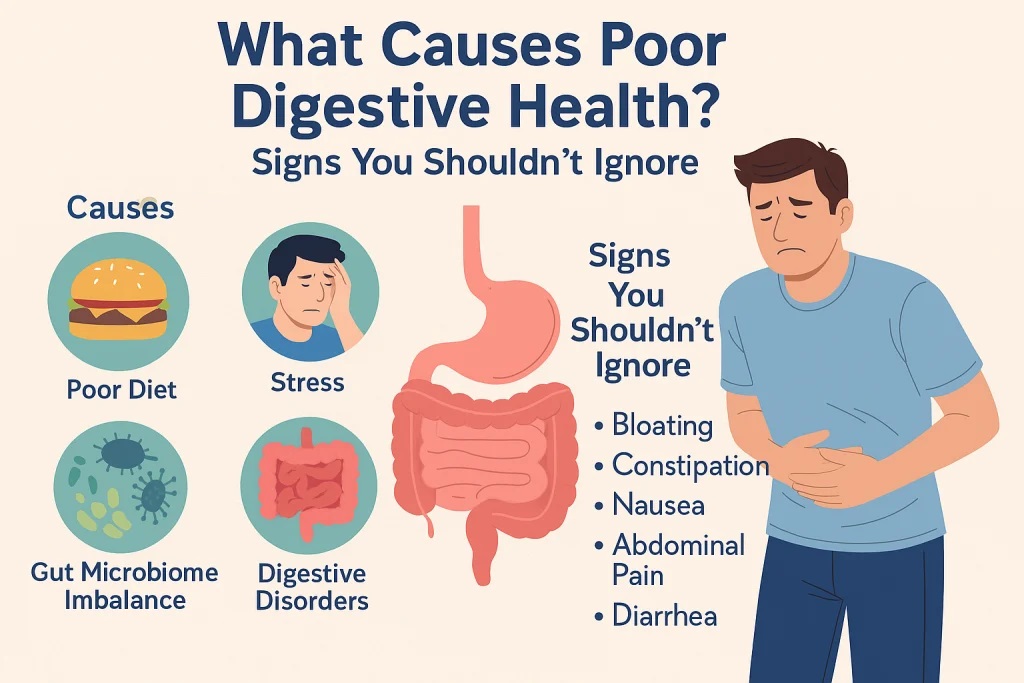At Local MD, we understand that effective weight management is not just about calories in and calories out—it’s about supporting the body’s metabolism, preserving lean tissue, and promoting long-term health. In recent years, diets higher in protein have gained traction not simply as a trend, but because they offer distinct metabolic and clinical advantages when structured properly. In this extensive article we explore the medical benefits of high-protein diets, the mechanisms behind them, the clinical evidence, how to implement them safely, and what to watch out for.
Defining “High-Protein” and Why It Matters
When we refer to a “high-protein diet,” we’re talking about dietary patterns in which protein intake is higher than standard recommendations, particularly in the context of weight management or metabolic improvement. For many adults this means consuming roughly 1.2 to 1.6 g of protein per kilogram of body-weight per day (and sometimes higher, depending on activity level and goals) rather than the bare minimum of ~0.8 g/kg/d.
Research indicates that higher-protein diets—especially when combined with calorie restriction and exercise—can enhance weight loss, aid in fat-mass reduction, preserve lean body mass, boost satiety, and support metabolic health. Therefore, for individuals seeking not just weight loss but also a healthy body composition and metabolic resilience, increasing protein within a well-balanced diet can be an important strategy.
Mechanisms: How High-Protein Diets Work in Weight Management
Understanding why higher-protein diets work helps us implement them sensibly. Below are key mechanisms:
Increased Satiety & Appetite Regulation
Protein has a potent effect on hunger and fullness hormones. Studies show that higher protein intake increases levels of GLP-1, peptide YY, cholecystokinin, and reduces the hunger hormone ghrelin—leading to better appetite control. This means you may feel fuller after protein-rich meals and thus reduce overall caloric intake naturally.
Elevated Thermic Effect & Energy Expenditure
Digesting protein requires more energy than digesting fats or carbohydrates. This “thermic effect of food” means a slight boost in daily energy expenditure. Although this alone is not dramatic, when combined with reduced intake and increased activity it contributes to greater fat loss over time.
Preservation of Lean Body Mass
When losing weight, preserving muscle (lean tissue) is critical for metabolic health, functional strength, and long-term weight control. Higher-protein diets have been shown to spare lean mass during weight loss and help maintain resting energy expenditure.
Improved Body Composition & Fat Loss
Greater protein intake—especially when combined with resistance exercise—has been linked to better reductions in fat mass and improvements in body composition (lean mass: fat mass ratio).
Metabolic and Cardiometabolic Benefits
There is evidence that higher-protein diets may improve glycemic control, even in individuals with type 2 diabetes, and support favorable changes in blood pressure and lipid profiles (though results vary).
Clinical Evidence: What the Studies Show
Weight Loss and Fat Mass Reduction
A systematic review and meta-analysis found that higher-protein energy-restricted diets lead to greater weight loss, greater fat mass loss, and preservation of lean mass compared to lower-protein diets in the short term. For example, in diabetic patients, one meta-analysis of 9 trials found that high-protein diets produced significantly more weight loss and a reduction in HbA₁c of ~0.52 % over up to 6 months.
Weight Maintenance
Maintaining weight loss is notoriously difficult. Some evidence shows that higher-protein diets help attenuate weight-regain after loss: in one review, those on higher-protein diets regained 1-2 kg less weight over 3-12 months compared to lower-protein diets. However, long-term data (beyond a year) are less consistent, largely due to issues of diet adherence.
Improvement in Metabolic Markers
High-protein diets may contribute to improvements in glycemic control (lower HbA₁c, improved insulin sensitivity) and modest reductions in blood pressure and triglycerides. These benefits are particularly important when weight loss occurs and lean mass is preserved.
Important Caveats
While results are promising, not all studies show large differences, especially in the long term. Much depends on adherence, overall diet quality, exercise, and individual factors such as age, baseline health, and activity.
How to Implement a High-Protein Diet Safely at Local MD
At Local MD we recommend the following guidelines when integrating a higher-protein diet for weight management:
Assess Individual Needs
-
Estimate ideal body weight or target weight and calculate a protein target (e.g., 1.2-1.6 g/kg body weight/day) depending on age, activity, lean mass and medical conditions.
-
Review kidney/function status, metabolic conditions, medications and dietary preferences.
Choose Quality Protein Sources
-
Prioritise lean animal proteins (poultry, fish, lean beef/pork) and high-quality plant proteins (legumes, tofu, tempeh) for those preferring a plant-based approach.
-
Include a variety of sources to ensure essential amino acids, micronutrients and biodiversity.
-
Avoid relying exclusively on ultra-processed high-protein products which may carry added sugars or unhealthy fats.
Balance with Whole Foods and Nutrients
-
Combine high protein with ample vegetables, whole grains, healthy fats and fibre. A high-protein diet does not replace these other foundational components.
-
For example, combining protein with fibre helps boost satiety and supports gut health.
Distribute Protein Across Meals
-
Aim for moderate protein at each meal (e.g., 25-30 g protein per meal) rather than all protein in one sitting—which may optimise muscle protein synthesis and fullness.
Combine with Activity
-
Pairing higher-protein intake with resistance exercise and aerobic training enhances lean mass preservation, supports metabolic rate and optimises body composition.
-
Advise patients to incorporate strength training 2-3 times/week if medically cleared.
Focus on Long-Term Adherence
-
A “diet” that cannot be maintained is unlikely to deliver long-term results. We emphasise sustainable habits, realistic meals, flexibility and individualised plans.
-
Behavioural support, regular follow-up & monitoring enhance adherence.
Monitor Progress and Adapt
-
Track weight, body composition (if possible), waist circumference, energy levels, metabolic labs (glucose, lipids, HbA₁c) and renal/ liver function as needed.
-
Adjust protein intake or distribution if weight-loss plateaus, lean mass is lost, or if any medical concerns arise.
Medical Benefits and Specific Outcomes
Enhanced Weight Loss and Fat Loss
For individuals in a calorie-deficit phase, replacing some carbohydrates or fats with protein increases lean mass retention and maximises fat loss. This leads to better body composition, not just lower scale weight.
Preservation of Muscle, Strength and Metabolic Rate
Maintaining muscle mass is crucial, especially as you age. High-protein diets help mitigate the muscle-loss that typically accompanies weight-loss. That means better strength, mobility and metabolic rate (which helps prevent “yo-yo” weight cycling).
Improved Glycaemic Control and Cardiometabolic Risk
In overweight or diabetic populations, higher-protein diets—in conjunction with weight loss—improved HbA₁c, lowered blood pressure and had favourable effects on some lipid measures. This suggests benefits beyond weight alone: metabolic resilience is enhanced.
Better Appetite & Eating Behaviour Control
By promoting fullness and regulating hunger hormones, higher-protein diets help reduce graze-eating, late-night snacking and uncontrolled caloric intake—common barriers to weight management.
Potential for Better Weight-maintenance
Given that weight regain is a major challenge, using higher-protein intake during maintenance phases aids retention of lean mass and reduces fat accumulation, helping fewer “weight-bounce-back” scenarios.
Who Should Consider a High-Protein Diet & Who Needs Caution
Ideal Candidates
-
Adults who are overweight or obese and aim to lose fat while preserving muscle.
-
Individuals with prediabetes or metabolic syndrome who would benefit from improved metabolism.
-
People engaging in resistance or strength training who need sufficient protein for muscle repair and adaptation.
Considerations & Cautions
-
People with moderate-to-severe kidney disease should evaluate protein intake with their nephrologist, as excessive protein may stress kidney function.
-
Older adults with low muscle mass may benefit, but the approach must be combined with exercise and medical supervision.
-
Those relying heavily on processed “high-protein” bars or shakes should beware: nutrient-density, additives and overall diet quality matter.
-
Long-term high-protein diets should still ensure adequate fibre, micronutrients, hydration and variety—overemphasis on protein alone may lead to nutrient gaps.
Practical Meal Planning Tips at Local MD
-
Breakfast: Greek yogurt with berries + a handful of almonds (~20-25 g protein)
-
Lunch: Grilled chicken/leafy salad or quinoa-lentil bowl (~30 g protein)
-
Snack: Cottage cheese with veggies, or hummus + chickpeas (~10-15 g protein)
-
Dinner: Baked salmon (or tofu-tempeh) + roasted vegetables + whole grain (~30-35 g protein)
-
Distribute protein intake across meals; aim for total intake aligned with the 1.2–1.6 g/kg target (adjusted for weight goals).
-
Hydrate, include vegetables and fibre-rich carbs, keep overall caloric intake in appropriate range for weight loss or maintenance.
-
Combine with strength training schedule and track progress every 4-8 weeks.
Potential Limitations and Myths
-
“More protein means unlimited calories” — Not true. Even high-protein diets must consider total energy intake and diet balance.
-
“Protein alone will make me lose weight” — Without calorie control and activity, protein is not a magic bullet.
-
“High-protein is bad for everyone” — For healthy adults with normal kidney function, higher protein is generally safe when well-balanced; but it must be tailored.
-
“Only animal protein works” — Plant-based proteins (legumes, tofu, tempeh, seitan) can also deliver high-protein benefits when combined for full amino-acid profiles.
-
“You must eat protein hourly” — Focus on adequacy and distribution; quality matters more than obsessing over “protein timing” for most people.
Conclusion: High-Protein Diets as a Strategic Tool for Weight Management
At Local MD we view high-protein diets not as fads but as strategic tools in weight management—when applied thoughtfully, individually tailored, and supported by exercise and lifestyle changes. The evidence shows that increasing protein intake offers real benefits in improving satiety, preserving muscle mass, improving body composition, supporting metabolic health and assisting weight-maintenance.
However, it’s essential to implement such diets within the context of a balanced, nutritious eating plan, aligned with your personal health status, preferences and goals. As always, we emphasize sustainability: the best diet is the one you can maintain over the long term.
If you’re considering a shift towards higher protein intake, we encourage you to consult with us at Local MD: we can assess your individual needs, monitor your progress, and integrate this dietary approach into a broader plan of movement, nutrition, lifestyle and health maintenance.
Your body deserves a plan that supports not only losing weight but gaining health. A high-protein diet, when done right, can help you do both.






